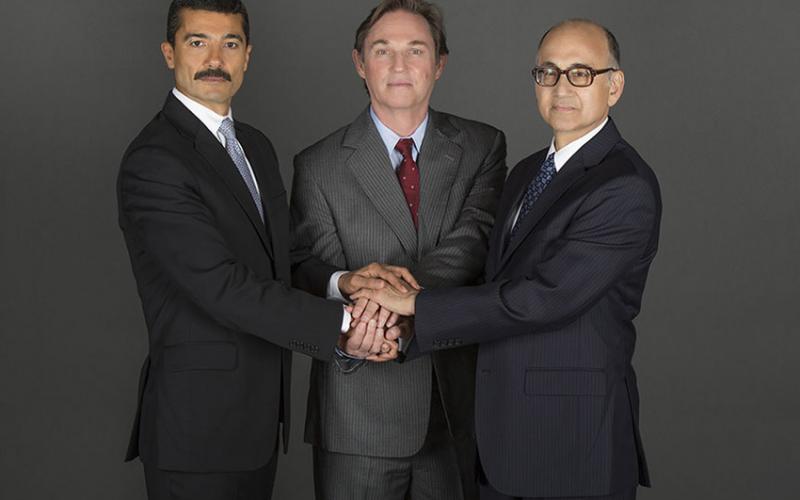It sounds like the set-up for a bad joke: a failing president, a former assassin, and a former terrorist meet up at a park in Maryland. But that’s what really happened in 1978 when American President Jimmy Carter convinced Anwar El Sadat, President of Egypt, and Menachem Begin, Prime Minister of Israel, to meet at Camp David to discuss peace in the Middle East. That nearly two-week summit is dramatized in the play Camp David, written by Pulitzer Prize-winning New Yorker writer Lawrence Wright (who also wrote the book Going Clear, which spawned a Peabody-winning documentary). It’s running now at the Old Globe in San Diego.
“The reason I wrote the play in the first place,” Wright says, “was to put forth the idea that peace is possible. Camp David showed it’s possible. These men, at a time of great turbulence, got together and forged peace, and it hasn’t been violated since they signed that paper. We lose sight of that.”
At the time of our conversation, the company was working on a 55th version of the play, even though it has already been produced at the Arena Stage in Washington, D.C. “The drama was the challenge in this,” Wright reveals. “I am a reporter. I know how to dig out the facts. When the Arena approached me, I said I’d have to deal with it the way I would a book or a New Yorker article. That was the easy part. The harder part was figuring out how many characters are there, what are the relationships, and how do I bridge fact with imagination.”
Wright had more than fact. He had cooperation from Carter. “I thought I knew something about Carter,” he says. “I had an opinion about him. All the weaknesses pointed out in his character, his micromanaging, and his refusal to make any concession to political necessity—those are the things that brought him down in many respects, yet at Camp David, they were strengths he put to good use. I came away with a tremendous amount of respect for him and a profound sense of gratitude for what he accomplished there.”
Despite the historic summit, the current state of affairs in the Middle East has Wright feeling unsure about amicable solutions. “It may be the settlements in the West Bank have gone so far that it will be very difficult to create a second state there,” he says. “You have to have people who are willing to make the domestic sacrifices to achieve something like Camp David. Begin and Sadat and Carter were unique and determined and persistent. And they had a vision. Those qualities are all part of what goes together to make the character of a peacemaker.”
Photo Credit: Jim Cox














